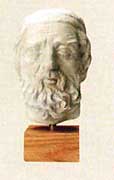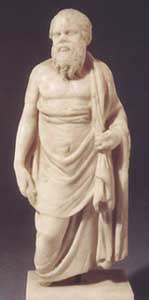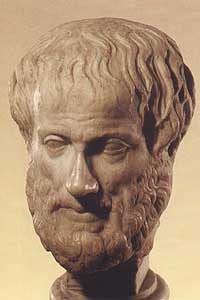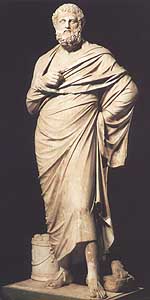Writers and Writing
The Homeric Poems
 The heroic age of Greece may be said to have come to an end with the final destruction
of Mycenae, but memories of Mycenaean greatness and the age of heroes were kept alive in
song. Homer, who sang in his Iliad of the Achaean war against Troy, lived long after the
Trojan war, i.e. in the eighth century. The Iliad was followed by the Odyssey, which
complements it. The Iliad is concerned with fighting and war conditions; in the Odyssey we
have a wider canvas and more varied social conditions.
The heroic age of Greece may be said to have come to an end with the final destruction
of Mycenae, but memories of Mycenaean greatness and the age of heroes were kept alive in
song. Homer, who sang in his Iliad of the Achaean war against Troy, lived long after the
Trojan war, i.e. in the eighth century. The Iliad was followed by the Odyssey, which
complements it. The Iliad is concerned with fighting and war conditions; in the Odyssey we
have a wider canvas and more varied social conditions.
History
Herodotus is called "The Father of History", as he was the first writer to
try to distinguish between fact and legend. In his nine books, the Historiai, he wrote
about the Persian Wars and his own travels. Chart of Greek writers and philosophers
| Socrates |
469-399 BC |
 Philosopher.
He encouraged people to question all their beliefs. Philosopher.
He encouraged people to question all their beliefs. |
| Plato |
428-348 BC |
Philosopher. He founded a famous school called he Academy. His writings include
Dialogues and the Republic. |
| Aristotle |
384-322 BC |
 Philosopher.
He was Plato's pupil and taught Alexander the Great for a time. His writings include
Politics. Philosopher.
He was Plato's pupil and taught Alexander the Great for a time. His writings include
Politics. |
| Aeschylus |
525-456 BC |
Writer of tragedies. The most famous is the Oresteia. |
| Sophocles |
496-407 BC |
 Writer of
tragedies. His plays include Antigone, Electra and Oedipus Rex. Writer of
tragedies. His plays include Antigone, Electra and Oedipus Rex. |
| Euripides |
485-406 BC |
Writer of tragedies. |
| Aristophanes |
450-385 BC |
Writer of comedies. His plays include The Birds, The wasps and The Frogs. |
| Hesiod |
8th century BC |
Writer. Wrote a history of the gods and farming. |
| Thucydides |
471-400 BC |
Historian. He wrote about the war between Athens and Sparta. |
 The heroic age of Greece may be said to have come to an end with the final destruction
of Mycenae, but memories of Mycenaean greatness and the age of heroes were kept alive in
song. Homer, who sang in his Iliad of the Achaean war against Troy, lived long after the
Trojan war, i.e. in the eighth century. The Iliad was followed by the Odyssey, which
complements it. The Iliad is concerned with fighting and war conditions; in the Odyssey we
have a wider canvas and more varied social conditions.
The heroic age of Greece may be said to have come to an end with the final destruction
of Mycenae, but memories of Mycenaean greatness and the age of heroes were kept alive in
song. Homer, who sang in his Iliad of the Achaean war against Troy, lived long after the
Trojan war, i.e. in the eighth century. The Iliad was followed by the Odyssey, which
complements it. The Iliad is concerned with fighting and war conditions; in the Odyssey we
have a wider canvas and more varied social conditions. 

